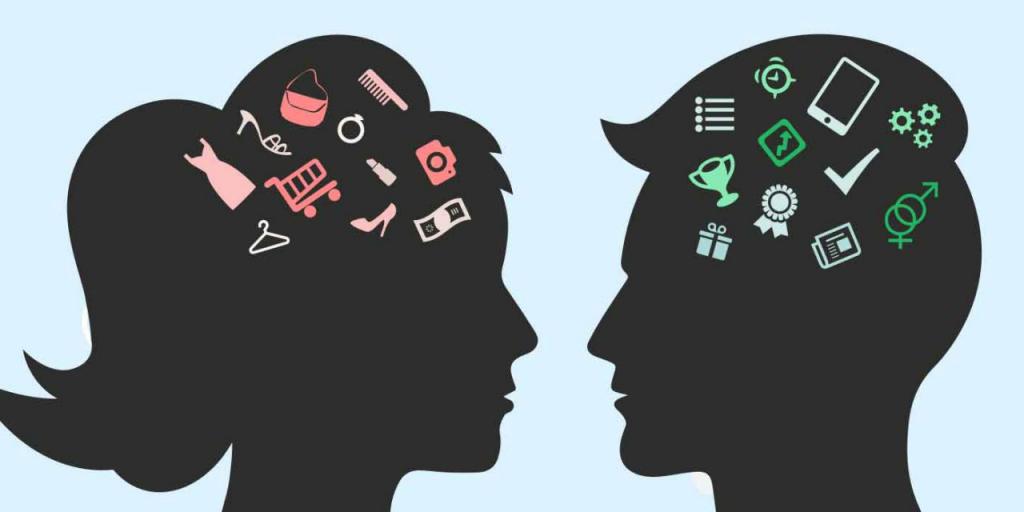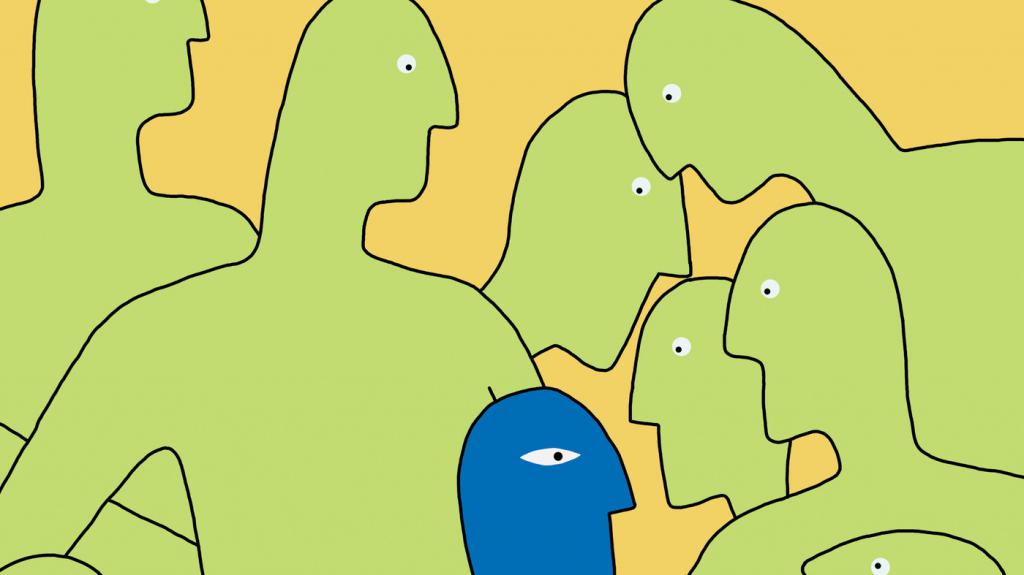Man is an interesting creature. In the Renaissance, it was believed that a man or woman can realize themselves in the spectrum from an angel to a demon, that is, initially we have everything, and no one knows how we dispose of this good. Today we will talk about the phenomenon from which everyone suffers and which is in everyone. In other words, the question on the agenda is what is bias.
Definition

When a person feels an unfair attitude, for example, at work, he says: "The boss is biased towards me!" Anyone in this sentence can take the place of the boss: teacher, wife, husband, mother-in-law, mother-in-law. A man is formed spontaneously, and he always has a couple of prejudices that are not formally based on anything, that is, a person does not have such experience to say: “I do not like those because ...”. He simply does not like someone, does not bear to the spirit, and generally does not want to see. We'll talk about the reasons, but now is the time to uncover the meaning of the word “bias”: “A thought, a judgment that has developed in advance and is usually based on bias.”
As we see, we need to look again at the explanatory dictionary, but already on the page with the noun “prejudice”, let’s do it and see the following: “Prejudiced negative opinion, attitude towards someone else”. The difficulty is that our faithful assistant defines one through the other and does not give any reasons at all. Although, probably, the question of the causes of the phenomenon is already outside the jurisdiction of the dictionary.
Quasi-rational and irrational bias

It is not so difficult to find out what bias is, how then to understand where it comes from. Why is a person biased towards someone, but neutral towards someone? For convenience, let's divide prejudice into two types - quasi-rational and irrational.
Quasi-rational is built, as a rule, on the transfer, extrapolation of specific qualities of a person to his whole personality as a whole. For example, a loser can never, according to the teacher, write a good picture or even a story. He’s a doppelganger, what to take from him?
Or one often encounters such a bias when the moral qualities of a person and professional ability are mixed, and a person is not hired just because he does not like people, dogs or cats.
If someone does not understand why such prejudice is called quasi-rational, it is because it only gives the impression of a rational, in fact, there is no genuine rationality in it, because one cannot judge a person by one quality or because, for example, doesn't know math or russian. Everyone has flaws, but this can not characterize a person in any way if his weaknesses do not affect the solution of the task.
What is bias irrational? A similar prejudice arises when a person has never met an opponent before, but is already negatively disposed towards him because of his gender, age, religion, sexual orientation, and appearance. Information, of course, is obtained in advance in such cases. The object of discrimination, in principle, can be any detail of the appearance or inner world of a person. And this is still a big problem, whether it will ever be solved or not is unknown.
Disinterest rather than objectivity

There is a famous phrase: “We consider the opinion that coincides with ours to be objective”. Therefore, it is always difficult to talk about impartiality. But disinterest is possible. For example, a young man appreciates the beauty of two women.To be fair, he needs to not know them, then he focuses only on his taste and those canons of beauty that he has learned. If the judge is related to the girls by kinship or love bonds, he will automatically be biased.
By the way, in this sense, the movie “Judge” (2014) is recalled. It starred Robert Downey Jr. and Robert Duvall. We will not disclose the plot and tell all the details, but we will say only one thing: sometimes the bias of a judge or his impartiality is affected even by the fact that he has a family and children. Naturally, a person holding such a position and performing such an important function for society should be able to cope with his emotions and not transfer feelings to the accused.
Arbitration for sports and fans' perpetual debate

There are other “people in black” who are constantly coming under fire from critics - these are football referees. Of course, fans of this sport can recall thousands of examples when the judge was wrong. But when they are mistaken in favor of the team for which the person is rooting for, then he finds an excuse, but if decisions are made against his beloved club, then they are ready to tear the referee to pieces. Actually, someone wants to send judges all the time for soap, because in a competition there are always two sides. Needless to say, the judge has hard work.
What is bias in this case? Complex issue. When it comes to sports, it is impossible to soberly, without emotions, look at the situation. But there are exceptions to every rule - the match between Chelsea and Barcelona in 2009. Iniesta scored a wonderful goal, but the match was remembered not by this, but by the ugly refereeing of the Norwegian football referee Evrebe. And even fans of "Barcelona" admit it, in whose favor the judge regularly was mistaken. But it was not malicious intent or the result of bribery. The next season, he also served the match of Bayern and Fiorentina, in which he also made a serious mistake, and this was the last match of the Evrebe team in the Champions League.
Can the influence of prejudice be avoided?

The answer is yes. And here I recall one case from the practice of Irwin Yalom, a writer and a psychotherapist. In his book “Treatment for Love and Other Psychotherapeutic Novels,” he describes a case of a patient who has chronic depression. When she begins to scourge herself at the reception, the therapist says to her: "It's not you, it's your depression." A similar technique can be applied to yourself when you grumble once again at a person because of his appearance, book or television addictions and other preferences. In this case, one should not forget the word “bias”; on the contrary, one must constantly control one’s prejudices, especially if they interfere with work or life.
Awareness of the problem is already half the battle. If a person admits that he is intolerant, his defect will become obvious, and perhaps he will do something with it.
Synonyms
Finally, let us leave a small gift for the reader’s everyday dictionary and discuss synonyms of “bias”. So the list is as follows:
- prejudice;
- partiality;
- bias;
- injustice;
- subjectivity;
- bias.
None of the changes in the object of study exudes positive vibes and does not optimize, and correctly. All phenomena presented in the list are subject to eradication. But there is only one misfortune - it is impossible, it will be necessary to completely redraw not only ideas about human nature, but also itself. But still, if someone thinks about a problem, then perhaps something will get off the ground.
